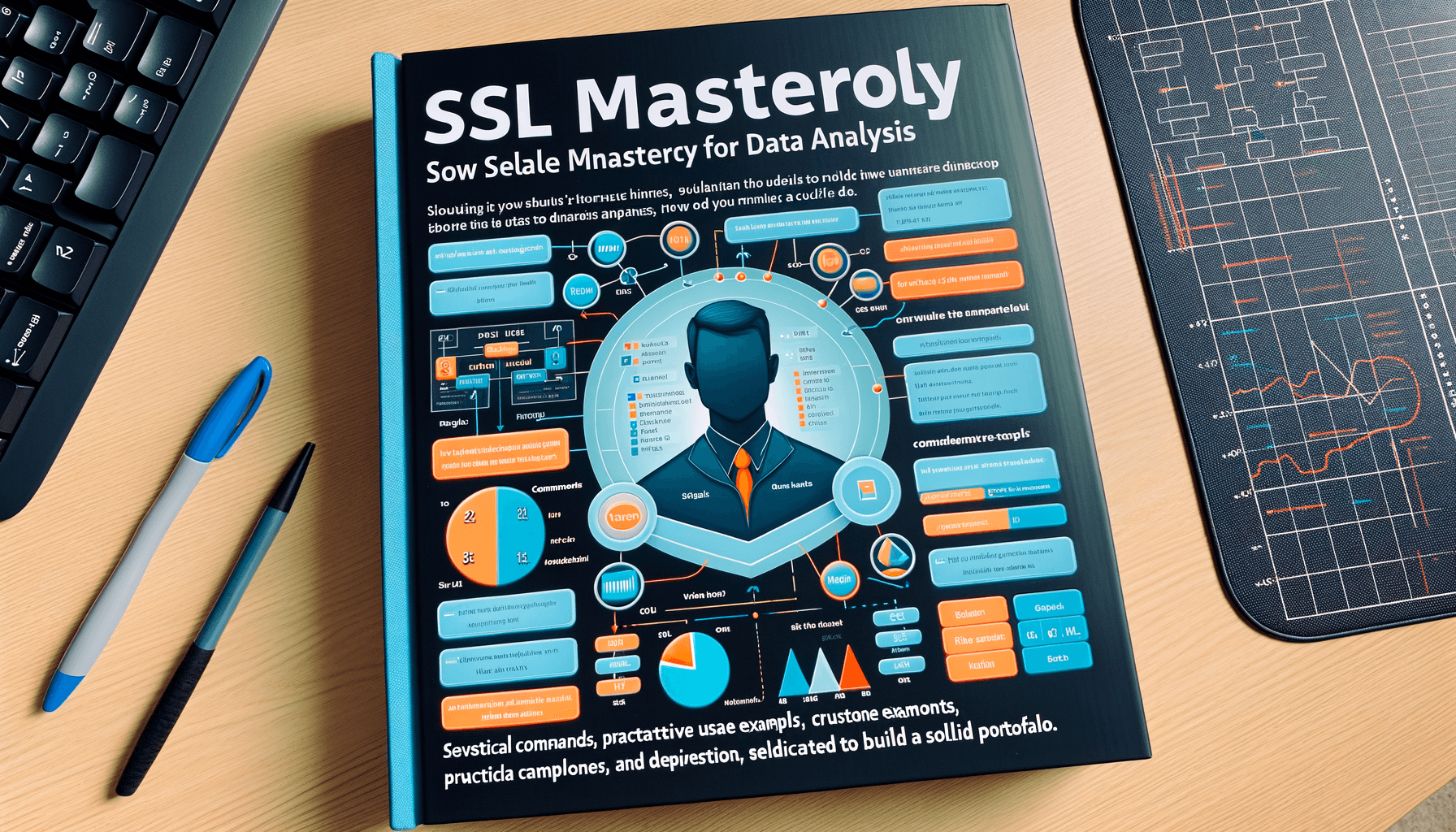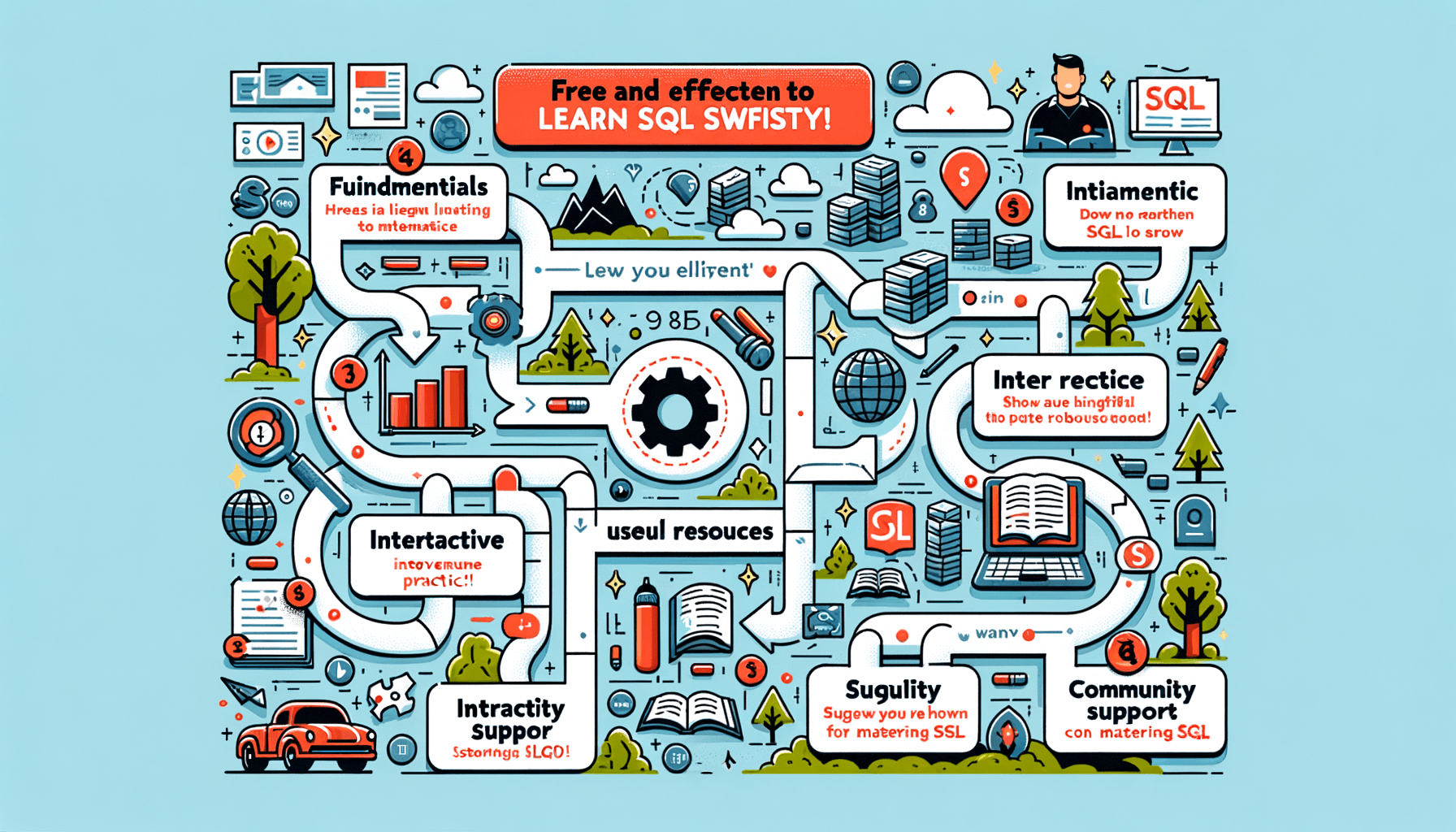A big variety of articles and resources

Exploring the Importance of SQL in Data Science
 Sia Author and Instructor
Learn SQL
Sia Author and Instructor
Learn SQL
8 minute read
Uncovering the Significance of SQL in Data Science
Key Aspects of SQL in Modern Data Science
SQL's role in data science is both foundational and transformative. By enabling efficient data management and facilitating in-depth analysis, SQL empowers data scientists to unlock the full potential of their data. As data continues to grow in volume, variety, and velocity, the importance of SQL in extracting actionable insights cannot be understated.
The Indispensable Role of SQL in Data Management
In the rapidly evolving field of data science, the ability to effectively manage and analyze data is crucial for success. SQL stands out as a fundamental skill that holds immense importance across different data science roles, offering a pathway to effectively harness data for insightful analysis.
Enhancing Data Analysis with SQL
SQL is often used to extract data from databases to perform various data analysis tasks such as querying, aggregating, and joining data tables for workflow purposes. Embracing SQL and integrating it into data science workflows is essential for any aspiring or seasoned data scientist.
The Role of SQL in Data Exploration
Identifying Patterns and Relationships
In the realm of data science, SQL is pivotal for identifying patterns and relationships among various data sets. By executing structured queries, data scientists can unveil hidden insights that are crucial for predictive modeling and strategic decision-making.
Using SQL Queries for Data Filtering
SQL's ability to filter data through specific queries enables precise data exploration. This targeted approach helps in isolating significant data points and trends relevant to the research question or business needs.
Metrics Calculation through SQL
SQL is instrumental in calculating various metrics that are essential for thorough data analysis. These metrics often include summary statistics like mean, median, and mode, which provide a quantitative foundation for further analysis.
Common SQL Commands and Their Impact in 2023
Data Manipulation and Management
SQL commands are essential for data manipulation and management, allowing users to create, modify, and manage data efficiently. Common commands include CREATE, INSERT, UPDATE, DELETE, and ALTER TABLE. These operations ensure the integrity and relevance of data within an organization's database, making them indispensable for data-driven decision-making.
Enhancing Decision-Making Processes
The ability to query data effectively using SQL commands like SELECT enhances decision-making processes. By extracting specific data sets, SQL supports advanced analytics and business intelligence, crucial for strategic planning and operational improvements.
Synergy with Other Data Science Tools
SQL commands integrate seamlessly with other data science tools, creating a robust ecosystem for data analysis. This synergy facilitates complex data operations, such as JOINs and subqueries, which are vital for comprehensive data analysis and insights generation.
Foundation of SQL in Data Science
Direct Data Access and Database Interaction
SQL's ability to provide direct access to databases is crucial for data scientists. This direct interaction allows for the efficient retrieval and manipulation of data, which is essential for timely and effective analysis. The use of SQL enables professionals to execute complex queries with precision, ensuring that data-driven decisions are based on the most relevant and up-to-date information.
Simplifying Complex Queries
The power of SQL lies in its ability to simplify complex data queries. Data scientists often face the challenge of extracting specific insights from large datasets. SQL's structured approach and robust syntax make it possible to break down intricate data relationships into manageable queries. This simplification is vital for conducting thorough and accurate data analysis, ultimately enhancing the quality of insights derived.
Ease of Data Extraction
SQL is renowned for its straightforward methods of data extraction. This simplicity is particularly beneficial in data science, where speed and accuracy are paramount. By streamlining the process of data extraction, SQL not only saves time but also reduces the likelihood of errors, making it a preferred tool for many data analysts. The ease of data extraction is a key factor in the rapid execution of data projects, from initial data gathering to final analysis.
Why SQL is Essential for Data Science
Relational Database Management
SQL is the backbone of relational database management systems (RDBMS), which are crucial for organizing and storing data in a structured way. The ability to use SQL to manage and query relational databases is a fundamental skill for data scientists, enabling them to efficiently handle large volumes of data.
Speed and Efficiency in Handling Big Data
SQL's performance in handling big data is unmatched. Its syntax and structure allow for quick querying and data manipulation, making it ideal for the fast retrieval of data. This speed and efficiency are vital in a field where time and accuracy are of the essence.
Prerequisite for Data-Driven Operations
SQL is not just a tool; it's a prerequisite for any serious data-driven operation. Its pervasive use in the industry makes it essential for data scientists to be proficient in SQL to effectively perform their roles. Embracing SQL skills can significantly enhance a data scientist's ability to derive insights from data and make informed decisions.
Real-World Applications of SQL in Data Science
Case Studies and Success Stories
SQL's real-world efficacy is vividly illustrated through numerous case studies across various sectors. For instance, in e-commerce, SQL has been pivotal in enhancing customer experience by enabling sophisticated data analysis for personalized recommendations and inventory optimization. Similarly, in healthcare, SQL facilitates comprehensive patient data management, significantly improving treatment outcomes.
SQL in Large Scale Data Projects
The integration of SQL with big data technologies like Hadoop and Spark has revolutionized data handling capabilities in large-scale projects. This synergy allows for advanced data transformations and efficient large dataset management, proving SQL's scalability and robustness in handling complex data challenges.
Impact on Business Outcomes
SQL's impact on business outcomes is profound. By enabling faster and more accurate data analysis, businesses can make more informed decisions, leading to improved operational efficiencies and increased profitability. The ability to quickly access and analyze large volumes of data is a key advantage that SQL offers, making it an indispensable tool in the data-driven business landscape.
Best Practices for Integrating SQL into Data Science Workflows
Workflow Optimization
To ensure peak performance and efficiency, optimize SQL queries by focusing on selecting only the necessary data, using proper indexing, and avoiding costly joins when possible. This practice not only speeds up data retrieval but also conserves computational resources.
Error Reduction Techniques
Maintaining data integrity is crucial in SQL databases. Implementing robust error handling and validation protocols can significantly reduce the occurrence of data errors. Regular audits and the use of constraints ensure that the data remains accurate and reliable.
Collaborative Data Science Environments
Fostering a collaborative environment is essential for leveraging the full potential of SQL in data science. Utilizing version control systems and establishing clear coding standards promotes teamwork and enhances the overall quality of data projects. This approach ensures that all team members are on the same page and that changes are tracked and managed effectively.
Conclusion
In conclusion, SQL's role in data science is undeniably crucial. It serves as the backbone for data manipulation and analysis, enabling data scientists to extract, analyze, and interpret large datasets efficiently. The ability to use SQL effectively can significantly enhance a data scientist's capabilities, making it an indispensable skill in the toolkit of modern data science professionals. As data continues to play a pivotal role in decision-making across various industries, the importance of SQL in data science will only grow, underscoring the need for aspiring data scientists to master this powerful tool.
Frequently Asked Questions
What is SQL and why is it important in Data Science?
SQL, or Structured Query Language, is crucial for managing and manipulating databases, allowing data scientists to effectively harness and analyze data for insights. It's fundamental for relational database management and essential for data-driven operations.
How does SQL enhance data analysis?
SQL enables efficient data management and in-depth analysis by allowing data scientists to filter, manipulate, and extract data quickly. This facilitates identifying patterns, calculating metrics, and deriving actionable insights from large datasets.
What are some common SQL commands used in Data Science in 2023?
Common SQL commands include SELECT, INSERT, UPDATE, DELETE, and JOIN. These commands are used for data manipulation, management, and to enhance decision-making processes by interacting with databases effectively.
Can SQL be integrated with other Data Science tools?
Yes, SQL synergizes well with various data science tools and programming languages, enhancing its utility in data analysis and project management, and supporting a wide range of applications in data science workflows.
What are the best practices for integrating SQL into Data Science workflows?
Best practices include optimizing workflows for efficiency, reducing errors through proper data handling techniques, and fostering collaborative environments that leverage SQL for shared data science tasks.
What real-world applications does SQL have in Data Science?
SQL is used extensively in real-world data science projects for data exploration, pattern identification, and decision-making. It supports large-scale data projects and significantly impacts business outcomes through data-driven insights.
Related Articles

10 Effective Tips on How to Learn SQL Online
9 minute read

A Comprehensive Guide to Learn SQL for Analysts
8 minute read


